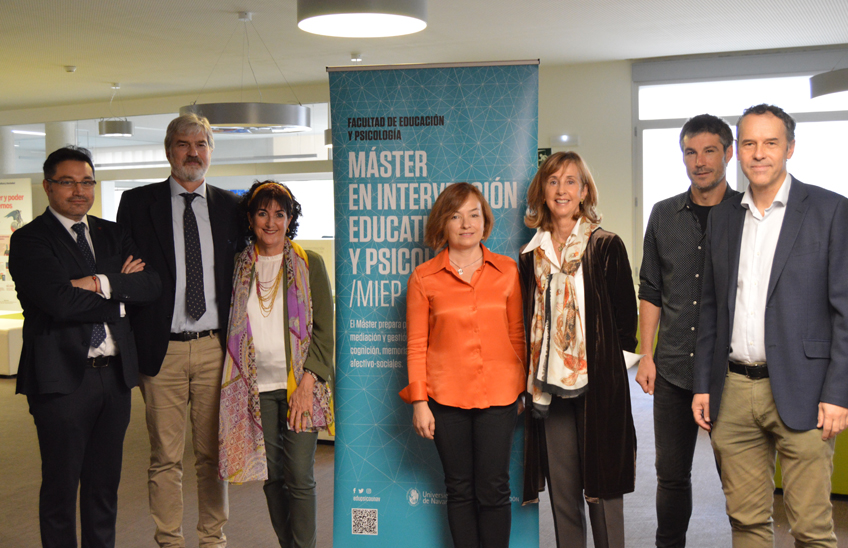Experts from different disciplines address suicidal behavior
The workshop was organized by the Master's Degree in Educational and Psychological Intervention of the University of Navarra.

14 | 11 | 2022
The need to eliminate the taboo and stigma of suicide, the need for prevention and care protocols, the need for financial aid and social support for survivors to avoid isolation and loneliness, and the importance of early detection, understanding this behavior as something multi-causal, were some of the conclusions reached at an interdisciplinary workshop held at the University of Navarra.
More than a hundred people, including students and professionals from the fields of educational, psychology and health attended the session 'When life weighs: understanding suicidal behavior' organized by the Master's Degree in Educational and Psychological Intervention.
The meeting took place in the context of the Professional Seminars offered by Master's Degree. Its director, Charo Reparaz, explains that "these seminars seek to enrich the academic training of its students with the contributions of experts on some current educational topic . Therefore, on this occasion, we have brought together professionals from Education and psychology, as well as from journalism and the police, seeking their perspective to help understand suicidal behavior".
The workshop began with the presentation of Alfonso Echávarri, Director Technical association International Telephone of Hope in Navarra, on 'The psychogenesis of suicidal behavior in its longitudinal view'. He stressed the importance of "enlightening people who do not yet know that they want to live" and pointed out that when working with people in vital crisis "it is necessary to consider their whole framework staff, to favor an adequate restructuring that allows them to make decisions compatible with life".
Gabriel González, journalist of the Diario de Navarra and member of the Commission for the Prevention of Suicidal Behavior of the Government of Navarra, continued with his contribution on 'The media, an ally in prevention'. From his professional perspective, he pointed out the importance of taking care of the way in which information about suicide is transmitted, paying special attention to the ethical responsibility of limiting the information content.
The importance of protocol
From the educational area, the guidance counselor of high school San Ignacio de Pamplona, Marta Alforja, presented the 'protocol for the Prevention and Action in the face of Suicidal Behavior' of the center. According to Alforja, it "offers a model that sets guidelines for action, provides security and contributes to the coordination of the different professionals and those responsible for the educational community". "Its purpose - he added - is to accompany before, during and after the risk or suicide attempt occurs in our student body".
Next, Lucía Villar, psychologist and expert in elderly care, addressed the topic 'After suicide, survivor's grief'. Villar stressed that "survivor grief is characterized by greater emotional intensity, especially guilt; by a strong family impact and, above all, by overwhelming questions that will never be answered". He also stressed that providing support to these mourners is "an urgent public health issue".
The last intervention was at position of Eduardo Sainz de Murieta, Chief of area of research Criminal of the Policía Foral. He presented the 'guide of good police practices in the face of suicidal behavior', accompanied by a testimony staff on the relationship that these professionals live in their work with the reality of suicide. He also highlighted the relevance of the immediate call to 112 in the event of any attempt of suicidal behavior.
The workshop concluded with a roundtable moderated by Professor Elkin Luis de la School from Education and Psychology of the University of Navarra. He opened the discussion with the question: What factors protect us from the ideation of death and hook us to life? He also started the colloquium stating that not every person who thinks of suicide as an option experiences mental illness and valued the importance of community partnerships and action.




